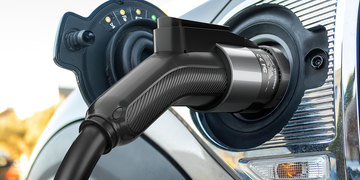The cost of charging at an electric vehicle (EV) charging station can vary widely based on several factors, including the type of charging station, your location, and the charging network or service provider. In this article, we delve into the key considerations to answer the burning question: Is charging at an EV charging station expensive?
The Factors Influencing Charging Costs:
EV Charging Station Speed:
Charging stations are categorized into different levels based on charging speed. Level 1 chargers use a standard household outlet and are usually the slowest, while Level 2 chargers are faster and are commonly found in public spaces. DC fast chargers provide the quickest charging times. The cost may increase with the charging speed.
Charging Network or Service Provider:
Different charging networks or service providers may have varying pricing structures. Some may charge a flat fee per charging session, while others may charge based on the amount of energy (kWh) consumed. Additionally, some charging networks offer membership programs that can provide discounted rates for regular users.
EV Charging Station Location:
Geographical location can impact charging costs. Rates may vary by region, influenced by local electricity prices and operating expenses. Urban areas may have different pricing structures compared to rural locations, so it's essential to consider where you plan to charge your EV.
Membership Programs and Subscriptions:
Many charging networks offer membership programs or subscriptions that provide users with perks like discounted rates and priority access. Regular users may find these programs financially beneficial, so it's worth exploring membership options provided by the charging network.
Public vs. Home Charging:
Charging at home is often more cost-effective compared to using public charging stations. Home charging allows you to take advantage of residential electricity rates, which are typically lower than the rates at public charging stations.
EV Charging Station Usage Time Rates:
Some charging stations, especially Level 2 chargers, may have time-of-use pricing. This means that the cost of charging can vary based on the time of day, with potentially lower rates during off-peak hours.
Is charging at an ev charging station expensive?

Telgeoot EV Charging Station
· Up to 44 mi of range added per hour at 11 kW / 48 amp output
· Auto-sensing handle to open charge port
· Monitor and manage your charging schedule and usage from the Tesla app
· Wi-Fi connectivity for over-the-air updates, remote diagnostics and access controls
· Versatile indoor / outdoor design
· Variable amperage configurations depending on installation location
· Power-share with up to six Wall Connectors
· 19.6-foot cable length
· One-year warranty for residential use
· Easy installation for hassle-free setup
UL Listed - Ultra-Low Electricity Rates
Telgeoot EV Charging Station are authorized to display the UL Mark, has been equipped with multiple safety protections, Over Voltage protection, Overload protection, Short Circuit protection, Ground protection, Earth Leakage protection. This charging unit can operate in environments of -30℃ to 55℃ (-22°F to 131°F). The connector operating life is up to 10000 times. Allows to adjust charging current range from 1 to 48A, level 2 EV 240V 11kw home charger can work 7X faster than a normal Level 1 chargers, Say goodbye to long charging times.
While the perception of charging at EV stations being expensive persists, the actual costs are influenced by a myriad of factors. It's crucial for potential EV owners to research and understand the pricing structures of charging stations in their area. Additionally, considering factors like charging speed, provider, location, and membership programs can help users make informed decisions that align with their budget and charging needs.
Is charging at an ev charging station expensive? In summary, while charging at some public stations may have associated costs, the actual expense will depend on various factors. It's recommended to research the pricing structure of the charging stations in your area and consider the most cost-effective options based on your charging needs and habits.





